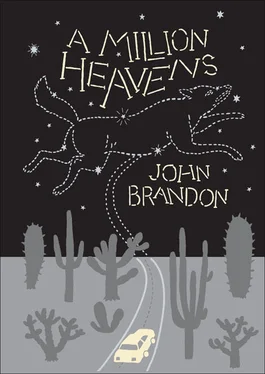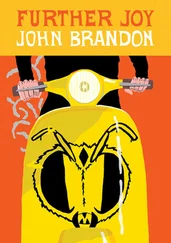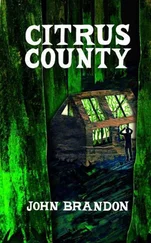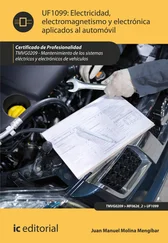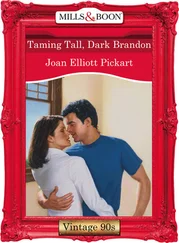Now Reggie touched the belt buckle but didn’t lift it off the polished wood of the piano. The buckle was a skull with wings, the skull smiling deviously. The next time Reggie had seen his uncle, the next big holiday, his uncle hadn’t had the Corvette and he didn’t seem as tan or carefree. It was easy for Reggie to see that he’d turned out a lot more like his father than his uncle. Reggie liked to work and didn’t care to impress anyone except the people closest to him. When he’d died he’d been driving an old Dodge truck his father had handed down to him.
Reggie turned away from the piano with the intention of leaving the main hall and almost walked into a bureau, broad and hunched-looking, close enough to the piano that when Reggie backed up a step they seemed like a set. He knew this bureau. It didn’t tower like it had when he was a kid, but he recognized it. It was his father’s. And here it was. His parents had new furniture now, but the bureau squatting mutely in Reggie’s space had been his father’s years ago. As a kid, Reggie used to sneak into his parents’ bedroom and creak the bureau drawers open and pore over the contents. There were boxes in the bureau and boxes inside those boxes. Jewelry that probably wasn’t worth much but that Reggie could think of as pirate treasure. Photos of relatives Reggie had never met. Car titles and birth certificates in baroque script. Tie pins and cigar cutters.
Reggie had stolen a buffalo nickel. He had no idea why he hadn’t simply asked for it, but instead he’d filched the old coin and taken it back his room and after that he’d never again picked through the bureau. The nickel had been old when Reggie had taken it and it was older now. Reggie had no idea where his father had gotten the nickel or what meaning it held. His father, if he’d noticed it missing, had never said anything about it. Of course he’d noticed it missing. Reggie, as he’d grown older, had often wanted to confess, to clear his conscience and have a laugh about it, but he never had. Now it was too late. He wondered if, when his parents were finally ready to sift through his possessions, they’d find the nickel in the old fire engine bank.
Next was a program from a chorus recital Reggie had performed in, perched in the piano’s music holder, which to that point had sat empty. Reggie didn’t touch the program or even look closely. He knew it by the yellow-winged birds on the cover. The program marked the first experience Reggie’d had with a girl. His memory was a plaything, he gathered. He’d known his afterlife was a plaything, but apparently his history on earth was too. Kimmy Susteran. She’d never spoken to Reggie before that day on the bus when she took his hand firmly in hers and guided it up under her white polo shirt. Reggie wasn’t going to indulge in this recollection. Someone wanted him to indulge, so he was refusing. He wanted to think about what he wanted to think about. He wanted to think about nothing and wait in peace for whatever he was waiting for.
The wolf had begun his rounds early in order to see the humans gather outside the clinic building. He wanted to witness their arrival, and so he had crossed over from Golden to the outskirts of Albuquerque with the shadows still strong. This was an excellent way to get shot, but getting shot seemed a far-off fear, too obvious a fear. He padded past the old market and bellied under one of the trucks on the adjacent lot and saw as the first humans found their places under the weak, lofty lights. One at a time or in clutches they entered the quiet and hunkered in it, intensifying it. The wolf didn’t know what he’d wanted to learn, beating the humans to this spot. Soon enough he was waiting again, like last time. The cars appeared in a slow flurry and then everything was still. The wolf could hear confused lizards scuttling around outside the perimeter of the human presence, wondering what was going on. The wolf could hear a noise the moon was making.
The wolf did not enjoy these meetings. He did not enjoy watching the humans stifle their sneezes to preserve the quiet. They were young and old, these humans, men and women. None of them would laugh or cry. This parking lot, this hush, made the silly serious and the weak strong, but none of these humans would ever be as serious as the wolf. He was fascinated because the humans weren’t acting like humans, but there was nothing in this for him. And probably the humans were acting like humans — probably they were intentionally acting unlike themselves, which only humans would do. In some way the wolf could not detect, they were competing or bargaining.
It was not a struggle for the wolf to leave this time. He shimmied out from under the truck and galloped vacantly in the direction he always went. Like the moon, he saw everything, and seeing everything was the same as seeing nothing.
He galloped until he heard drumming, and when he snapped back into the moment he was startled to be in Rio Rancho. He could not recall his journey up the western flank of the city but he felt the fatigue of the journey. He tracked toward the drums, soon hearing other instruments too. This was music being made by live humans right this moment, deep in the night. He knew if he got close enough he would feel the music. It was the jubilant soundtrack of parades. The wolf was nearing the high school. He leapt a fence and crossed a grass field where he’d seen humans attempt to outrun each other. He snuck through a courtyard crowded with a thousand tiny locked doors and smelled the glue of books and smelled cotton and salt and the plant the young humans burned and inhaled.
When the wolf emerged from the school buildings he was socked by the thump of the drums and rising blasts of the horns and by the fragrance of the lush grass getting chewed under the boots of the band members as they pivoted this way and that. He took cover behind a closed-up concession stand. The bleachers were empty. The leader would stop the playing and raise his voice and then motion for the show to resume. The leader wasn’t wearing a hat like the others but he was wearing white gloves that seemed to glow. The wolf was enthralled and had no sense of what was behind him or whether he was obeying or defying his instincts. The music was so loud that for a moment he didn’t pay attention to the scents on the air. These arranged yet wild sounds would outlive the instruments that produced them and certainly outlive the young humans that played the instruments and the music would exist, somewhere, after even the wolf was dead and gone.
After peeking to make sure all the vigilers had gone, he raised the blinds to the dark, petering foothills. His coffee had gone cold. It was hard to stand up straight. His back had begun to ache from the orange-upholstered armchair in the clinic room, but going out and locating a store and talking to a salesman and choosing and purchasing his own chair and having it brought up to his son’s room on the sixth floor was not something he was going to do. Everything was daunting. He had even been skipping his pushups. He wasn’t going to do them unless he could do the full two hundred, and when the time came to do them, after breakfast, light swelling into the window, he found that he was unable to get himself down on the floor. He thought he could already tell a difference, that his triceps were succumbing to atrophy. It didn’t take long at his age. He was even smoking less — one around midday and one after dinner and one late at night when he couldn’t sleep. The nurse who’d shown him the smoking spot, Lula, had switched shifts and the new nurse was too young and businesslike and made Soren’s father nervous when she came in, flashing her practiced smile, and shifted Soren so he wouldn’t get bedsores. Soren’s father had quit putting socks and shoes on his son each morning. He had stalled out on his science fiction novel, and he told himself it was because the shoddy sleep he’d been getting made his eyes ache. That wasn’t really it. The problem was that all the crises of the galaxy seemed either too large to fathom or too small to worry about. Things would work out in the book, and he didn’t feel he needed to know exactly how.
Читать дальше
